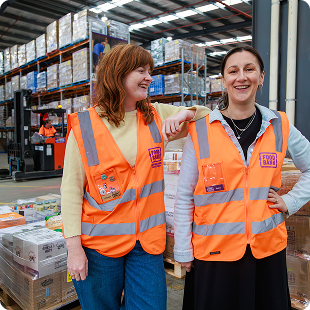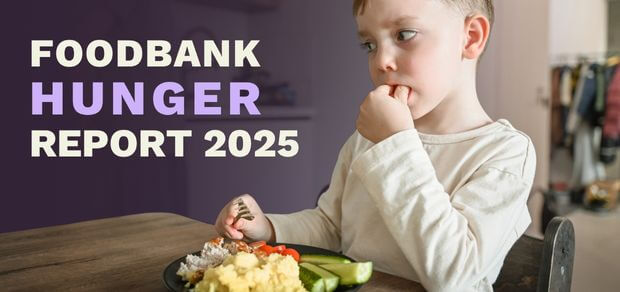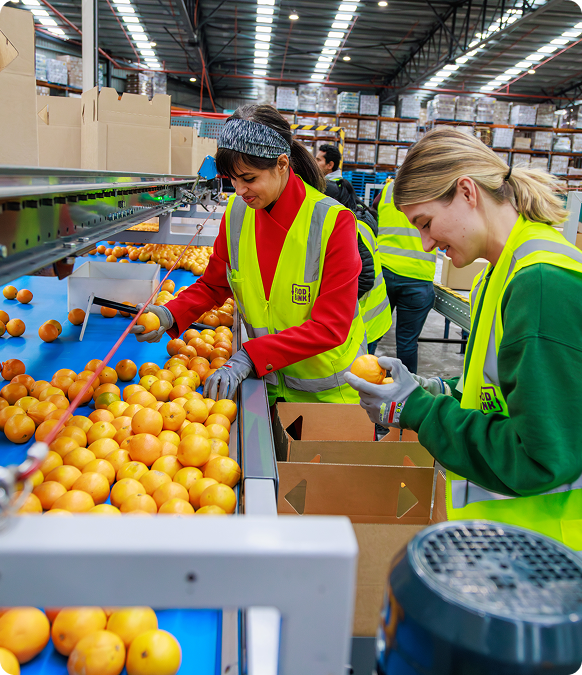Foodbank Hunger Report 2025 Media Release

Hunger in Australia hits breaking point:
Foodbank calls on Federal Government to act now
to stop Australians going hungry
Wednesday 5 November 2025 – One in three Australian households, or 3.5 million households, experienced food insecurity in the past 12 months, according to the Foodbank Hunger Report 2025, released today. The report paints a stark picture of widening food insecurity across the nation, debunking the myth that hunger only affects the unemployed or homeless.
“While we dismiss hunger as something that only impacts the most vulnerable in our community, this year’s Foodbank Hunger Report shows households of all stripes, from those that are employed, are renting or have mortgages to those, raising children, or living with disability, neighbours, friends and family we all know – are reporting food insecurity as a fact of life for them.
This is not a fringe issue. Appallingly, hunger is mainstream in Australia right now. Our federal government must act,” said Foodbank Australia CEO, Kylea Tink.
The Foodbank Hunger Report 2025 reveals that cost-of-living pressures remain the number one concern for 91% of food-insecure households, followed by housing and the broader economy. Behind the data are the real stories of families forced to skip meals so children can eat, workers going hungry to pay rising rents, and people living with disability or illness struggling to put food on the table.
Among the report’s most alarming findings:
- One in two (48%) of all renting households have experienced food insecurity in the past year.
- Seven in ten (67%) of households that include someone with a disability or health issue have experienced food insecurity in the past 12 months, with three quarters of them in the severe category.
- Nearly 7 in 10 (68%) single-parent households are now food insecure
- One in five households earning $91,000 or more experienced food insecurity in the past 12 months.
“Food insecurity doesn’t discriminate,” said Ms Tink. “Australians are doing everything right: working, budgeting, seeking help – yet still going hungry. This is a failure of policy, not people. We need coordinated, national action now.”
Foodbank Australia is urgently calling on the Federal Government to:
- Adopt the National Food Donation Tax Incentive: A smart and proven way to make it cost effective and easier for farmers, growers and manufacturers to donate edible, surplus produce to food relief organisations instead of sending it to landfill. A simple, fix that would see good food end up in bellies, not bins.
- An immediate cash injection of $5 million in MYEFO to assist with natural disaster preparedness including:
- Sourcing key staples needed by both first responders and communities affected by natural disasters as quickly as possible. This includes bottled water, long life products, cleaning and household products.
- Locking in pre-deployment warehouse / distribution locations in areas renown for natural disasters: such as Far North Queensland, Darwin, northern WA – to ensure urgent food relief can be accessed when arterial roadways and train lines are cut off.
- Locking in transportation for far and wide distribution.
“Food insecurity doesn’t happen in isolation – it’s a combination of a debilitating and incessant cost of living crisis, slow-growing wages struggling, inflationary pressure, unaffordable housing, and an inadequate safety net. Food insecurity can be eradicated, but the Federal Government must step up, lead and take smart action to ensure Australians are not going hungry,” said Ms Tink.
“Right now, it’s cheaper for many food producers to throw away perfectly good food, rather than donate it. This is madness when millions of Australians are going without meals.
A National Food Donation Tax Incentive is a not a radical suggestion, rather, independent modelling shows it would deliver enough food for the equivalent of 100 million meals, save producers and businesses money, and help to halve food waste by 2030.”
With the recently released National Climate Risk Assessment painting a grim picture about the escalating impacts of severe weather events on Australian communities, Foodbank Australia is also urging the government to not only recognise food relief as a critical, ongoing pillar of disaster preparedness but to ensure the funds are supplied to ensure talk turns into action.
“When disaster strikes, Foodbank provides emergency supplies, food, water and cleaning products to impacted communities and first responders. But the need doesn’t end when the flames or floods subside. Economic hardship lingers long after the clean-up, and Foodbank continues working with communities to help people get back on their feet. We need urgent funding to support these communities in the years it takes to rebuild,” said Ms Tink.
In its 13th year, The Foodbank Hunger Report 2025 is the nation’s most comprehensive snapshot of food insecurity, based on a nationally representative survey of Australians.
To read or download the full report go to Foodbank Hunger Report 2025.
 Log in
Log in

